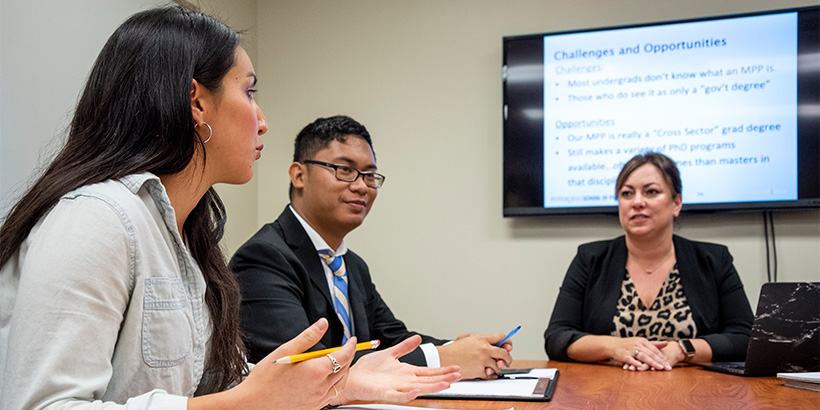Understanding the Policy Process

Policy-making involves several stages: problem identification, policy formulation, implementation, and evaluation. The process is shaped by political conflict, stakeholder resistance, and institutional factors.
Political leaders and institutions also play crucial roles in setting agendas, formulating
policies, and implementing them, which significantly impact their direction and effectiveness.
What is Policy-making?
The policy-making process is an organized series of steps designed to bring about specific results, transforming political goals into actionable public policies. Policy-makers face the dual challenge of managing immediate, reactive strategies while addressing long-term societal issues and disparities.
At its core, crafting policies involves managing ever-changing societal needs. Decision-makers must have a strong understanding of political dynamics and conflict resolution to steer policy development effectively toward desired goals. By shaping policies that address pressing challenges, policy-makers play a critical role in advancing government systems and guiding society toward an improved future.
Political Leadership in the Policy Process
Political leaders play a significant role in determining which policy proposals are
considered and prioritized. Their principles and convictions often guide the direction
of policy agendas toward their own political goals. They have the authority to decide
which policy initiatives are pursued and how they are communicated.
Stages of Policy Development
Policy development is a multi-stage process that includes the following critical phases:
- Agenda-setting: The stage where key issues are identified and prioritized for public discourse and governmental action.
- Formulating: The process of developing policies into proposed laws or actionable regulations.
- Implementing: The execution phase where policies are enacted by government agencies and other executive bodies.
- Evaluating: The assessment phase where policy outcomes are analyzed, and adjustments are made for improved effectiveness.
Agenda-setting
Agenda-setting involves identifying and prioritizing emerging issues that require government intervention. This stage establishes the groundwork for policy development by highlighting the challenges to be addressed.
The presentation of issues is significant in agenda-setting because it influences public perception of which matters are important and affects the steps in policy formulation. Governments employ various strategies and mechanisms to direct discussions on their priorities and exclude certain topics during this stage.
Formulation
The policy formulation stage is where objectives are thoroughly examined, potential solutions are developed, and decisions are made regarding the most effective strategies. Policy proposals are shaped into draft bills, regulations, or plans that aim to address the identified challenges.
Legislative bodies or executive branches must approve policy proposals. However, policymakers often encounter difficulties as long-term sustainable solutions may be overlooked in favor of short-term responses that cater to immediate political pressures.
Policy Implementation
This phase is where policies are converted into operations through administrative decisions, ensuring that objectives are met through strategic actions and proper allocation of resources. Clear communication and guidelines are essential during the implementation stage, as they help administrators interpret policies and make informed decisions.
Implementation includes various activities by governmental bodies, such as establishing regulations and rules, providing services, and conducting public education campaigns.
Evaluation
In the evaluation phase, policy-makers assess the policy's outcomes and determine necessary adjustments to improve its effectiveness. Evaluation is a systematic process that measures the performance of a policy against its intended objectives. It can involve qualitative and quantitative methods to gather data on the policy's impact, efficiency, and cost-effectiveness.
The primary goal of policy evaluation is to understand a policy's effectiveness and
inform future policymaking. It helps policy-makers decide whether to continue, modify,
or terminate a policy based on its performance.
Complexities of Policy-Making

The policy-making process is complex and often unpredictable, from the initial recognition of issues to the enactment and evaluation of policies. Coordinating efforts can become complicated when policies cover various topics that include different fields. Additionally, stakeholders and interest groups invested in current policies may resist changes that disrupt the status quo. These factors and varying interpretations by different groups involved can lead to unforeseen results during the implementation phase.
Successfully navigating the policy-making process requires skillful negotiation and overcoming opposition from political spheres, interest groups, and institutional structures. Advocacy plays a crucial role in overcoming these obstacles and is essential for effective policy development.
The Continuous Nature of Policy-Making
Policy formation is a continuous process that requires ongoing adaptation and modifications. As policies are implemented, new information and situations may require changes to the approach or the policies themselves. This iterative process ensures that policies remain effective and relevant over time.
Effective policy-making often involves collaboration across different fields and sectors to address complex social issues. Policy outcomes can be significantly improved by engaging various stakeholders and ensuring everyone works towards a common goal.
Role of Interest Groups and Media
Through their influence on agenda setting, interest groups and the media ensure that policy objectives and desired outcomes reflect their goals. Philanthropists and specialized interest groups utilize advocacy strategies and financial resources to guide policy initiatives.
The influence of media on public opinion is profound and can drive significant changes within policy frameworks by:
- Guiding the priorities of administrations and policymakers
- Highlighting obstacles or opportunities that influence the policy-making trajectory
- Shaping the public's understanding of societal issues by promoting particular perspectives
- Affecting each phase of the policy-making process with their narrative
Policy Actors and Stakeholders
Policy-making is a collaborative effort that encompasses a wide range of individuals and groups, including government departments and agencies, political parties, and elected officials.
Government Departments and Agencies
Government departments and agencies are instrumental in applying existing policies, aiding the drafting of new legislation, agenda-setting, and evaluating the performance of current regulations.
In the execution phase, these institutions are tasked with the practical application of policies. They are responsible for ensuring that the policies are carried out effectively, which includes managing service delivery and maintaining regulatory compliance. Their role in the policy process is integral to the functioning of government and the realization of policy objectives.
Political Parties and Elected Officials
Political parties and elected officials have substantial influence over the direction
and outcomes at every stage of the policy cycle, including the activities of government
agencies. The responsibility of deciding which policies to pursue and ensuring their
successful implementation largely rests with political leaders, including elected
representatives, staff, and agency executives.
Mastering the Art of Policy-Making
Mastering policy-making requires a comprehensive understanding of the process, an ability to analyze and negotiate, and the capability to make informed decisions. It involves the technical expertise in crafting policy and the strategic insight to work within the political environment, anticipate the outcomes of policy decisions, and adapt to changing societal needs.
Successful policy-makers are characterized by their proficiency in both the theoretical
and practical aspects of policy development. They can interpret complex data and research
findings to inform their decisions and are creative in finding solutions. They can
identify upcoming trends and potential challenges, and they possess the skills to
foster agreement among various stakeholders.
Pepperdine University's Master of Public Policy Program

Pepperdine's Master of Public Policy prepares leaders to work across diverse perspectives to apply America's timeless principles to today's policy issues. The program merges rigorous exploration into philosophy and history with advanced quantitative economics and policy analysis. Featuring the James Q. Wilson Core, this curriculum pays tribute to one of its founding members while encapsulating Pepperdine's dedication to viewing public policy as a vocation dedicated to service, anchored in Judeo-Christian principles of servant leadership.
Ryan Brown, a former student and future Associate at Cleary Gottlieb Steen & Hamilton LLP, reflects on his experience, stating, "I am very thankful for the big-picture analytical skills I learned at SPP, particularly through my coursework in national security, geopolitics, and economics." His experience underscores the value of a well-rounded education in shaping effective policy.